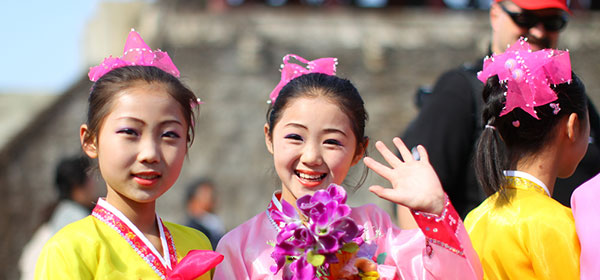With the icy tension between North Korea and the West appearing to thaw, there may one day be an opportunity for tourists to be welcomed by the abrasive Asian nation – but that is likely to be years away.
If you are a US citizen the message is clear: “Do not travel to North Korea due to the serious risk of arrest and long-term detention of US nationals.”
Despite the fact that US President Donald Trump and North Korean leader Kim Jong-un are set to hold talks in the next couple of months, there is no guarantee that outside that summit, American visitors will be treated respectfully.
But when it comes to Australians, the advice is not so straightforward.
The official recommendation to Aussies about dropping in on North Korea, which calls itself the Democratic People’s Republic of Korea, has not changed since September last year.
Government website Smartraveller.gov.au officially warns Australians to ‘reconsider’ their need to travel, but doesn’t play up the dangers as much as the US.
Conventional tourism is virtually banned in the nation. Tourists cannot drive there, they must form part of an official government tour and be accompanied by an authorised guide at all times.
Smartraveller.gov.au warns that Australians should not attempt to cross into North Korea with any items that may be of a political or pornographic nature, and that they can expect to have smartphones either confiscated or monitored.
If you must visit the nation, the site recommends that you keep your visit short and limit any activities. Foreigners have been subjected to arbitrary arrest and detention by North Korean authorities for behaviour that is not considered a crime in Australia.
While there have been hints that its nuclear weapons program may be reviewed, it remains to be seen if it will wind back its bombastic messaging and threats against other nations.
According to Smartraveller.gov.au: “Historically, there has been heightened rhetoric from North Korea during annual South Korean/US military exercises, in which Australia also participates. These routine and scheduled military exercises usually take place in February/March and August/September.”
The suggestion here is that North Korea is on high alert during those months and more likely to be reactive towards foreigners on its soil.
Are you curious to visit North Korea? Have you ever visited South Korea? Have you ever visited a country with a repressive regime?
Related articles:
North Korea’s weird letter
Rare glimpse inside N. Korea
Young Korean’s revealing tale

